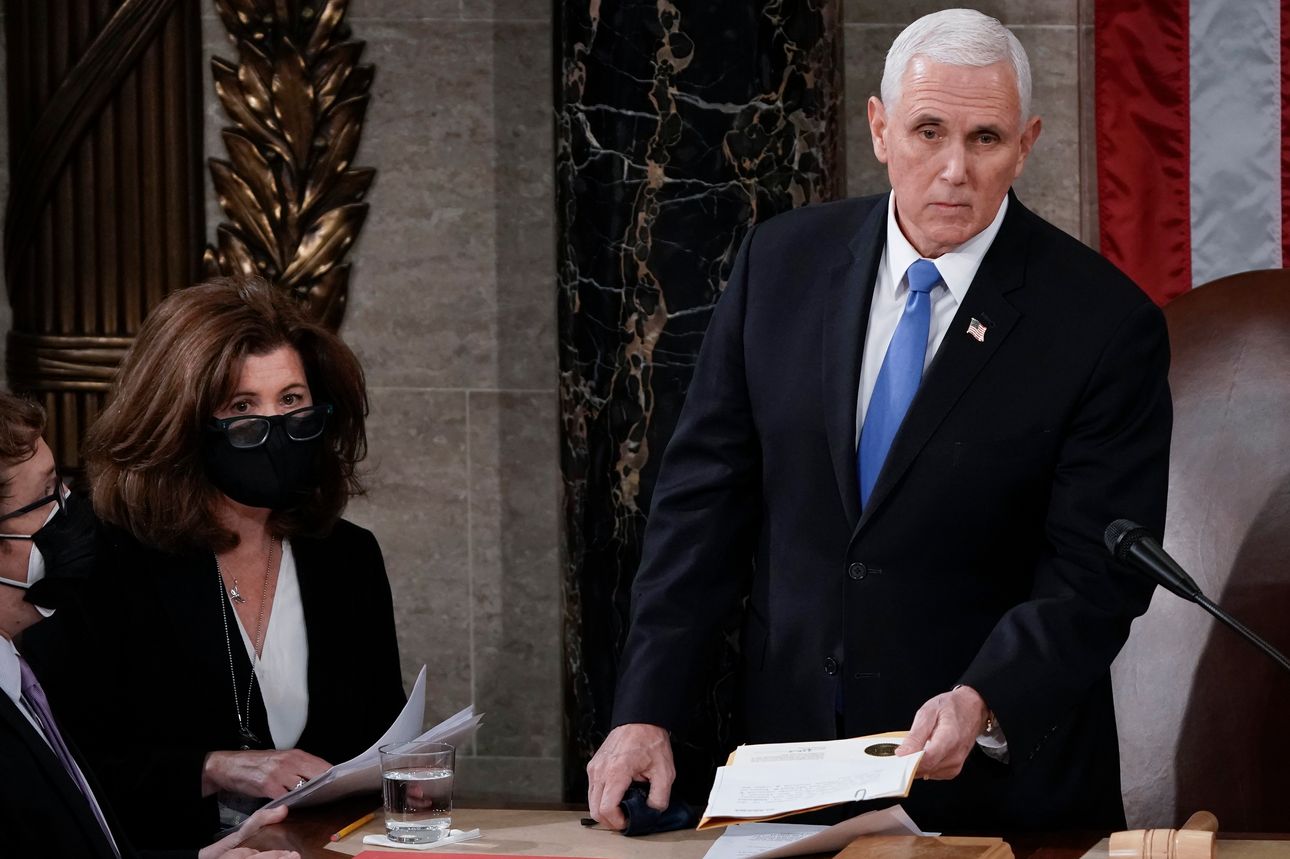By: The Editorial Board – wsj.com – January 4, 2022
The anniversary of the Jan. 6 Capitol riot is Washington’s theme of the week, and waves of righteous anger will roll across the Mall. We agree the riot was disgraceful, but then why not rewrite the law that encouraged Donald Trump’s supporters to think Congress could overturn the 2020 election?
We’re referring to the Electoral Count Act, the ambiguous 19th-century statute that purports to allow for a majority of Congress to disqualify a state’s electors after the Electoral College has voted. Congress’s certification of presidential election results should be a technicality, but Mr. Trump misled supporters into believing Vice President Mike Pence and Congress could overturn Joe Biden’s victory, leading to the Jan. 6 march on the Capitol.
The effort wasn’t close to succeeding, with only eight Senators objecting to the results in any states, though 139 Republicans did in the House. No Senators voted to object to enough states to deprive President Biden of the 270 electoral votes he needed to win. Presiding over the Senate, Mr. Pence properly understood his limited constitutional role and resisted Mr. Trump’s pressure to intervene. He was one of the heroes of that day.
Still, Jan. 6 was the most significant abuse of the law to date and part of a growing trend. A smaller number of congressional Democrats used the Electoral Count Act to object to both of George W. Bush’s victories as well as Donald Trump’s in 2016.
The Electoral Count Act was an attempt to avoid the mess that followed the contested 1876 Hayes-Tilden election, but its ambiguous language has made it open to abuse. In these polarized times, both parties could use the law in the future as an excuse to attempt to overturn an election in the House and Senate.
Congress shouldn’t have even the appearance of this power. The Framers didn’t want the executive branch beholden to Congress, which is why they designed an Electoral College to elect the President. They gave state legislatures the power to certify electoral votes, as they do according to the popular vote count in each state. Though the Electoral Count Act has never been tested in court, in our view it is unconstitutional.
We first endorsed repealing the Electoral Count Act last Jan. 27, and we’re happy to see some others on the right have recently followed. Even Politico has finally noticed.
Democrats run both houses of Congress and they are in the best position to put the Electoral Count Act on the agenda. But they have preferred to press for partisan advantage through their various bills to overturn state election laws. Those bills would require breaking the Senate’s filibuster rule to pass, which seems unlikely. They’d also erode confidence in the electoral process.
But there would be Republican support for ending Congress’s increasingly destabilizing role in presidential elections. Seven conservative GOP Representatives wrote in a Jan. 3 statement last year: “The text of the United States Constitution . . . is clear” that “Congress has one job here: to count electoral votes that have in fact been cast by any state, as designated by those authorized to do so under state law.”
New statutory language could clarify that once legal challenges are over and the Electoral College votes, Congress can’t change the outcome. Disputes in the states would be settled in the states with the judiciary as the best forum to adjudicate. This is what happened in Florida in 2000 in Bush v. Gore. The Supreme Court would probably have intervened in 2020 as well, if there had been competing slates of state electors.
Rewriting or repealing the Electoral Count Act leaves neither party with a partisan advantage. Now is also a good time to pass such legislation, since no one knows who will control each chamber of Congress in 2025.
Democrats keep saying Jan. 6 must never happen again, but their main goal seems to be to use the memory of that day against Republicans in 2022. If they’re honest about “never again,” they’ll grab the Electoral Count Act issue. Or Republicans could turn the electoral tables on Democrats by grabbing it first. If Congress does nothing, Americans are likely to conclude that Jan. 6 has become one more political prop for partisan gain.
To see this article and subscribe to other articles like this, choose to read more.
 Listen Online
Listen Online Watch Online
Watch Online Find a Station in Your Area
Find a Station in Your Area








 Listen Now
Listen Now Watch Online
Watch Online
